Has your cat stopped eating? It's a question that sends a shiver of worry down any cat owner's spine.
We know how much you love your furry friend, and when your cat stopped eating, you probably felt a surge of concern. You're not alone, and there's no need to panic.
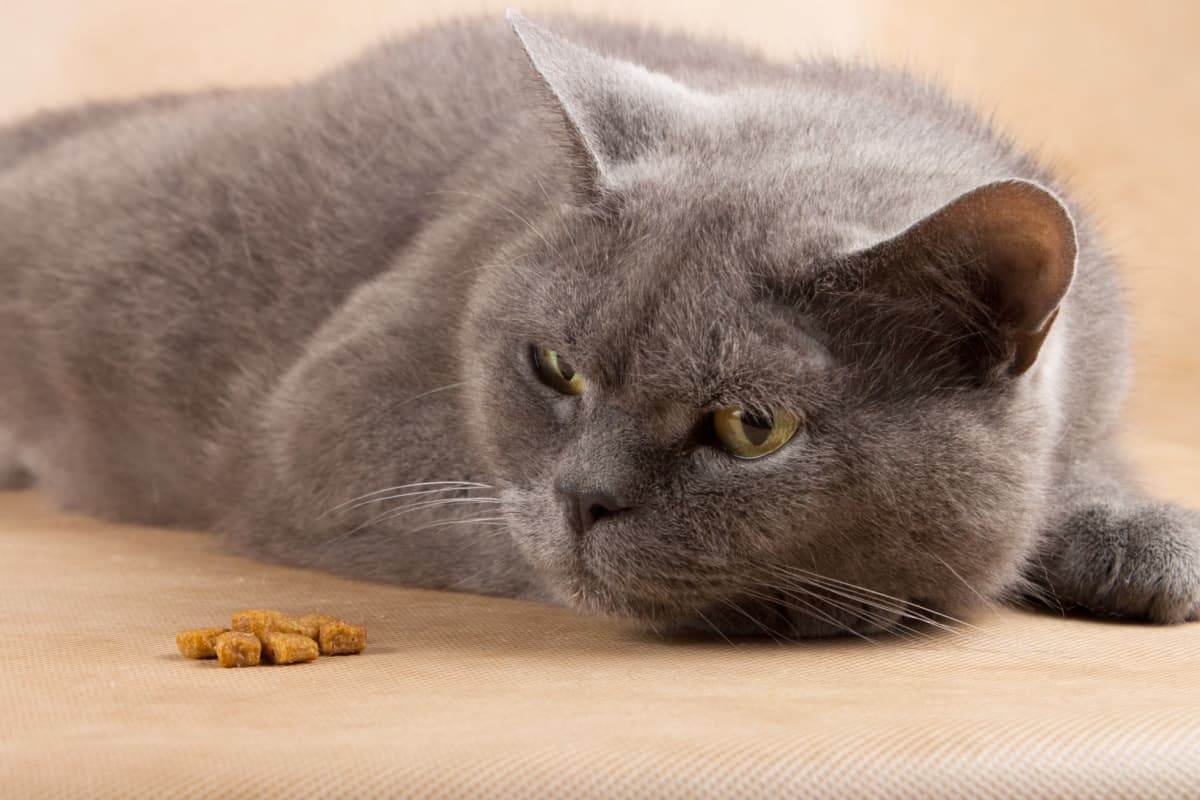
While a healthy adult cat typically consumes about one can of wet food or a cup of dry food daily, variations exist depending on their weight and activity level.
But when your feline friend suddenly loses their appetite and stops eating altogether, what do you do?
Whether your cat is merely sniffing the food with interest but not eating, or completely ignoring it, it's crucial to find out why.
In this article, we'll explore the possible reasons and solutions for when a cat stops eating and discuss whether or not it can be dangerous. Read on to discover how to help your beloved pet.
What Does It Mean When Your Cat Stops Eating?
When an animal stops eating, the condition is referred to as anorexia. Feline anorexia is not a disease in its own right. It simply means that the cat has stopped eating.
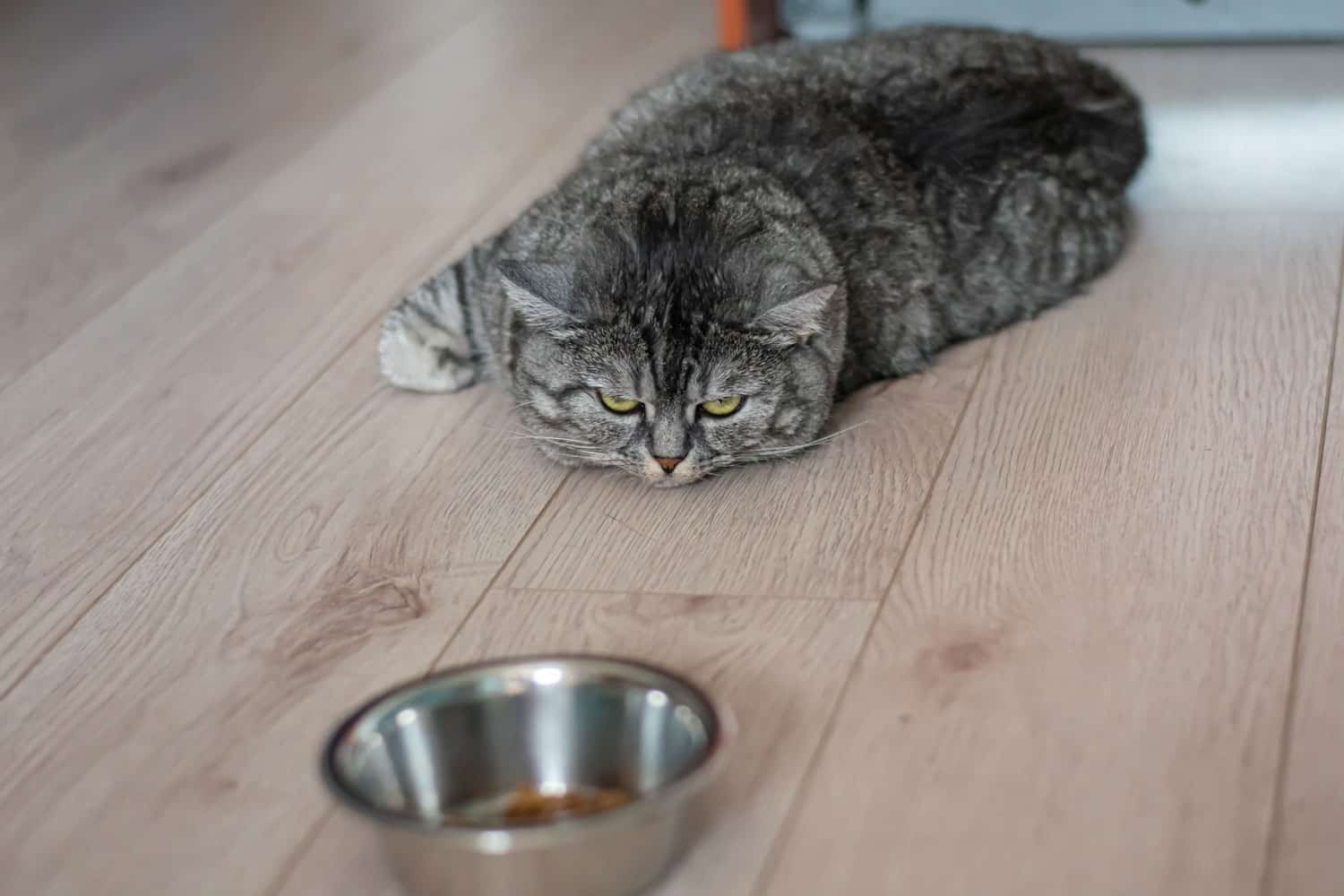
Cats can stop eating for many reasons. It can be a symptom of a disease or the result of stress. Here are some of the possible reasons for a cat to stop eating:
Medical Causes For Feline Anorexia
1. Problems Affecting The Cat's Sense Of Smell
Cats rely on their sense of smell when deciding if a substance is edible or not. If a cat loses his sense of smell, loss of appetite soon follows.
A stuffy nose, due to a respiratory infection is all it takes to get a cat to stop eating. Any obstruction in the nasal cavities can have a similar result.
SIGN UP FOR THECATSITE'S EMAIL UPDATES >
2. Nausea
Feeling nauseated is enough to put a cat off his food (as it would a human).
In some cats, licking their lips and smacking their mouth can be another indication of nausea, but oftentimes loss of appetite is the only symptom.
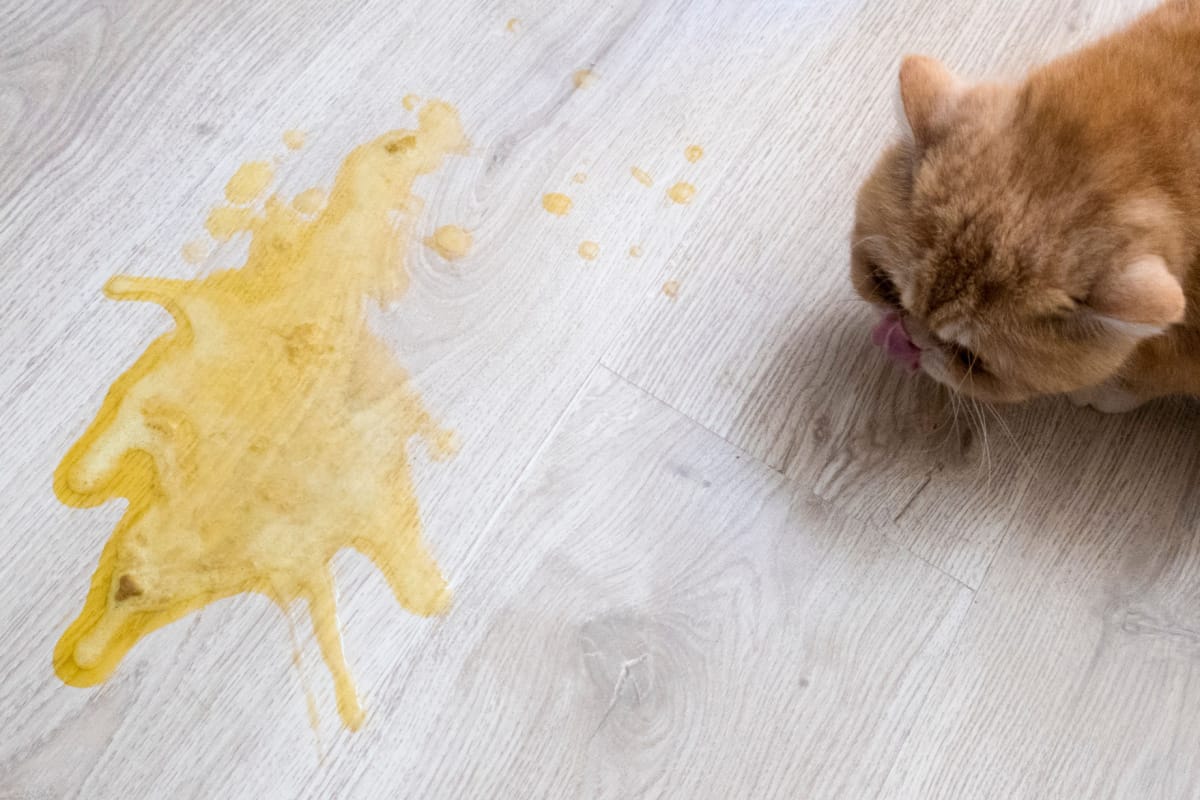
Nausea can be caused by many diseases and may also be a side effect of medication.
3. Sore Mouth
Tooth decay, gingivitis, and stomatitis can all cause a sore mouth, as can an injury to the oral cavity.
When a cat's mouth is sore, he may avoid eating altogether or try to lick his food but not take in any. Drooling is often another sign of a sore mouth.
Read more:
4. Malaise
Sometimes a cat just isn't feeling well enough to eat. It can be general malaise due to infection, or the after-effect of a medical procedure such as surgery or even vaccinations.
Other Possible Causes For Feline Anorexia
1. Disliking A Food
Sometimes it's as simple as flavor or texture preference.
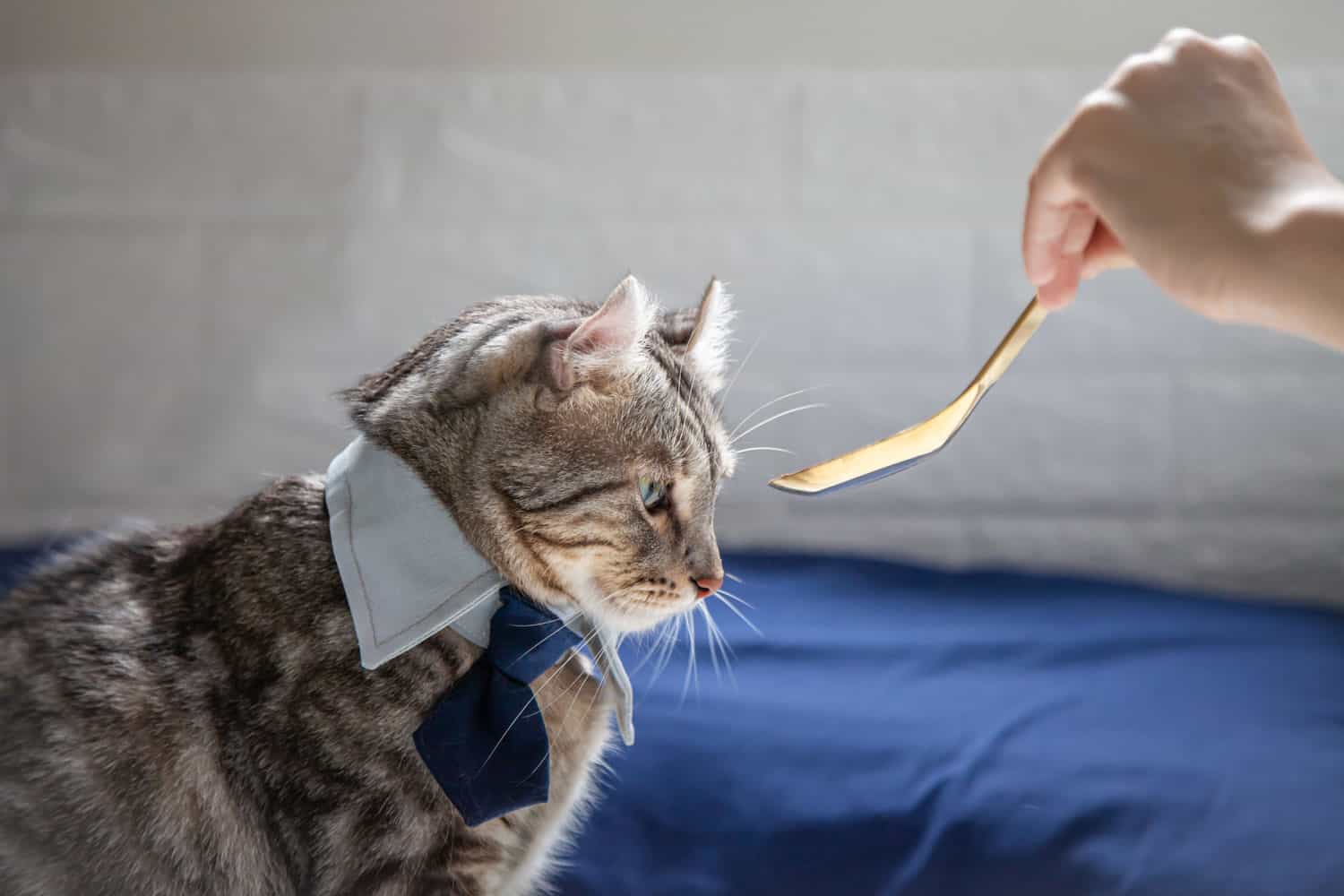
Strange as it may sound, some cats would rather starve than try a new type of food. Other times, the food may be slightly "off" or spoiled.
2. Associating Food With Fear
Cats may avoid feeding in a certain area of your home, or even from a certain dish if they associate the feeding with something scary.
The emotional trauma can be enough to make them stay away from food and go without.
3. General Stress
Stress in itself can cause a cat to lose his appetite and stop eating. Read here about stress and what may cause stress in cats:
Is It Dangerous For My Cat To Stop Eating?
In a word, yes!
Cats are built to consume food on a daily basis. Once calories stop coming in, the liver begins to process the cat's fat reserves. Unfortunately, cats only do this for a short while.
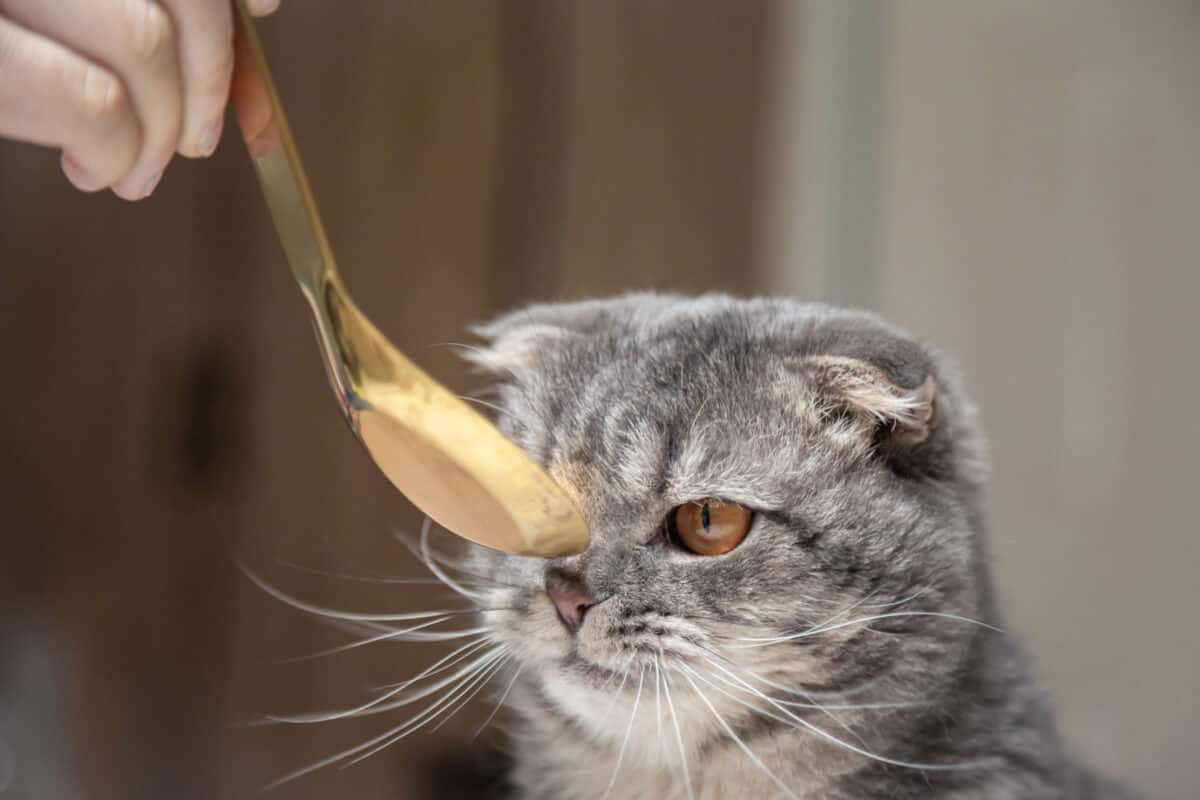
When too much fat reaches the liver, it begins to "pile up" there, in essence causing liver inflammation.
This condition is called hepatic lipidosis, or fatty liver, and in cats, it can be very serious and even fatal.
Their liver simply isn't built to deal with burning fat into energy for long periods of time.
The symptoms of hepatic lipidosis include fatigue, jaundice (yellowing of skin, eyes, and gums), and depression.
It can soon turn into a vicious circle, as the cat's simply not feeling well enough to eat. Without intervention, the cat will die within a few weeks.
It Is An Emergency?
The onset of hepatic lipidosis is a medical emergency. The process begins within 24-48 hours of lack of food. The good news is that it's reversible if caught in time.
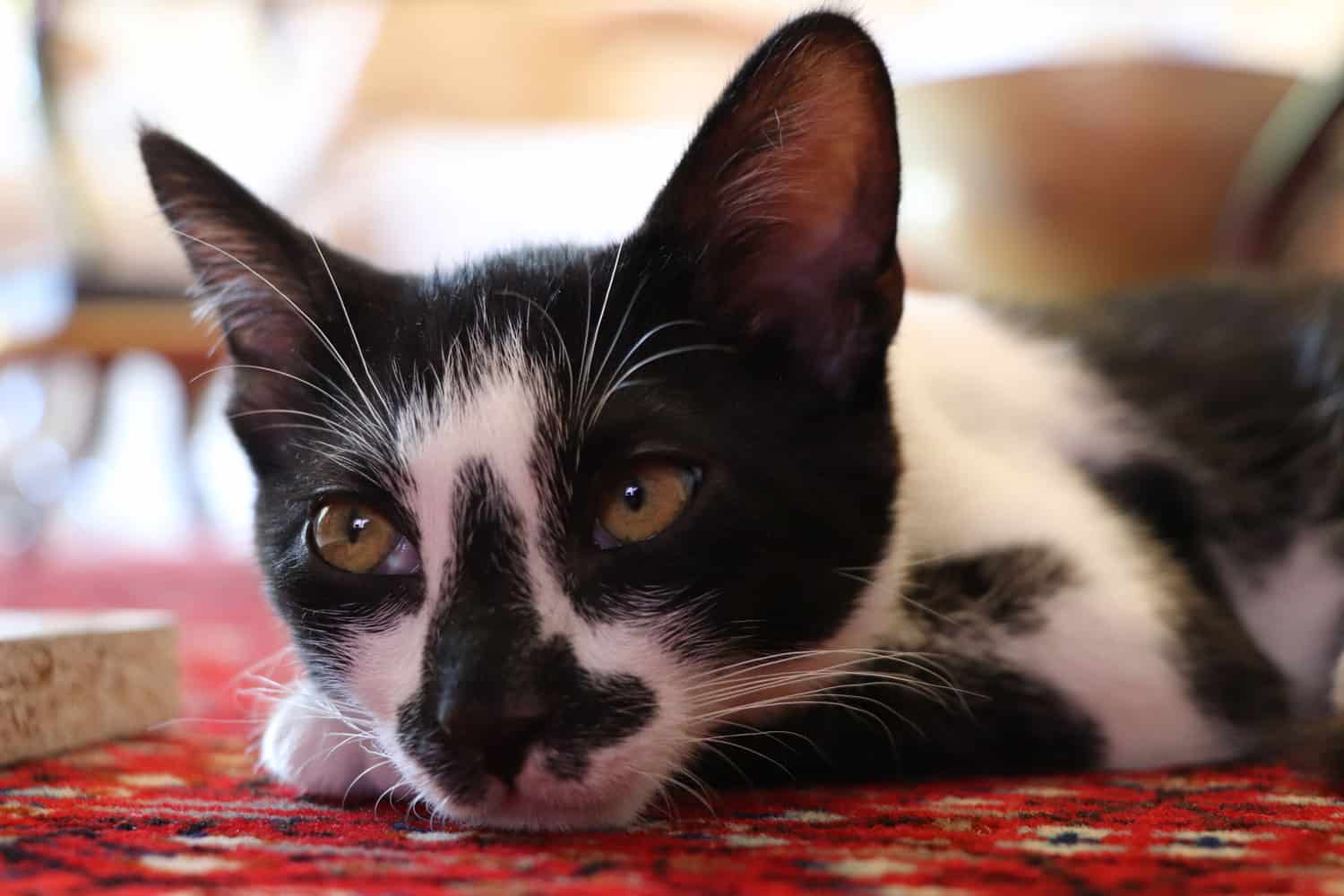
This is why it's very important to try and get a cat that's not eating to eat.
Regardless of the trigger for the anorexia, you should encourage a cat to eat, and if needs be, have a vet insert a feeding tube and force-feed the cat that way.
Never let your cat go without food for more than a day or two.
What to Remember When Your Cat Stops Eating
In conclusion, it's important to remember that when your cat stops eating, it could be due to a variety of reasons, from medical conditions to stress.
Be observant, and if your cat's appetite doesn't return within a day or two, seek professional help. Your proactive approach can make all the difference in your cat's health.
By understanding the potential reasons and taking appropriate actions, you can ensure that your beloved pet stays happy and healthy.
Trust your instincts as a cat owner and continue to provide the love and care your furry friend deserves.
SIGN UP FOR THECATSITE'S EMAIL UPDATES >
Share this information with other cat enthusiasts on your social media using the image below, as they might also be experiencing this kind of problem with their beloved feline.
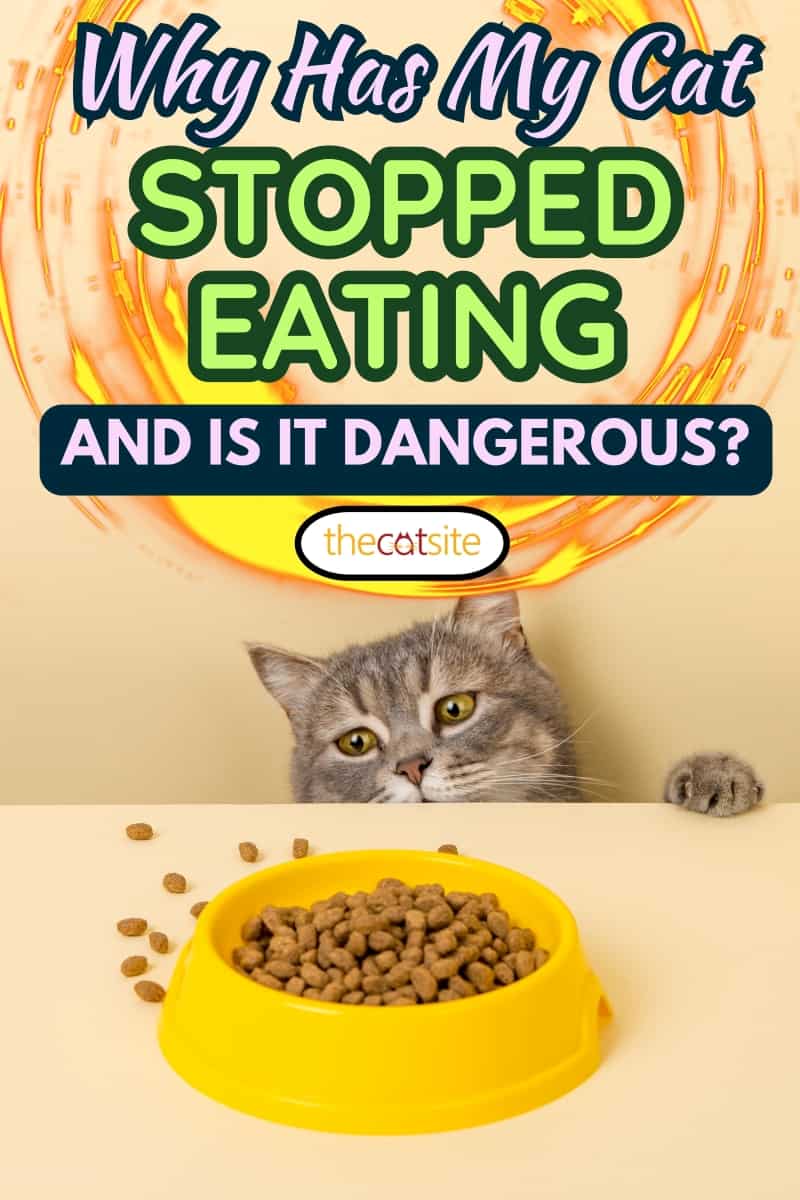
Next read this: How To Get Your Cat To Start Eating Again
Note: We may get commissions for purchases made through links on this page.

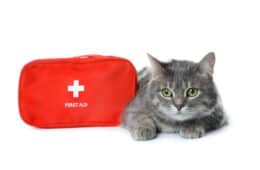
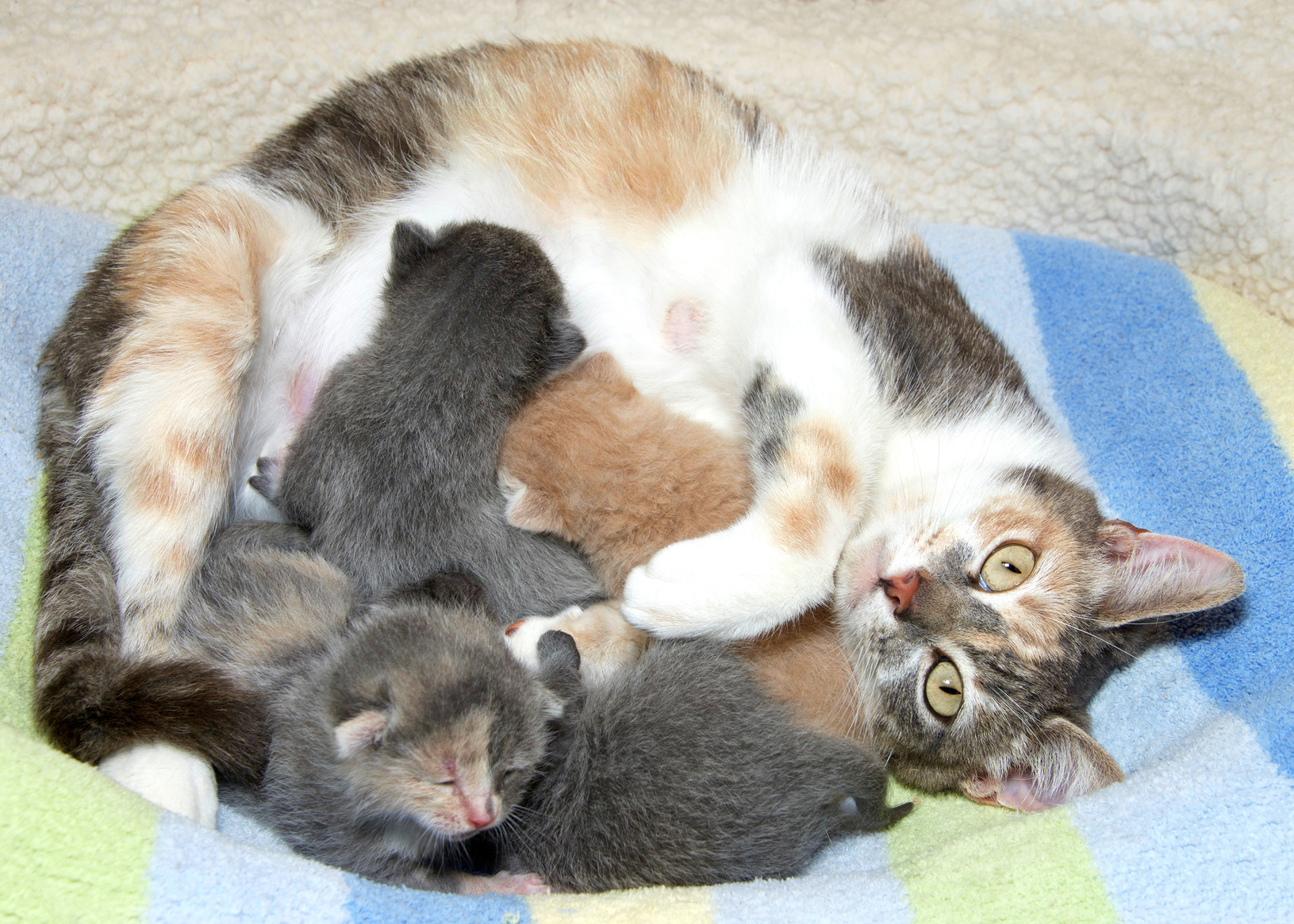
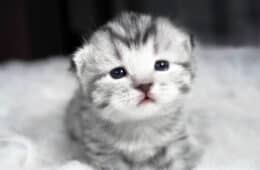
5 comments on “Why Has My Cat Stopped Eating And Is It Dangerous? [Answered]”